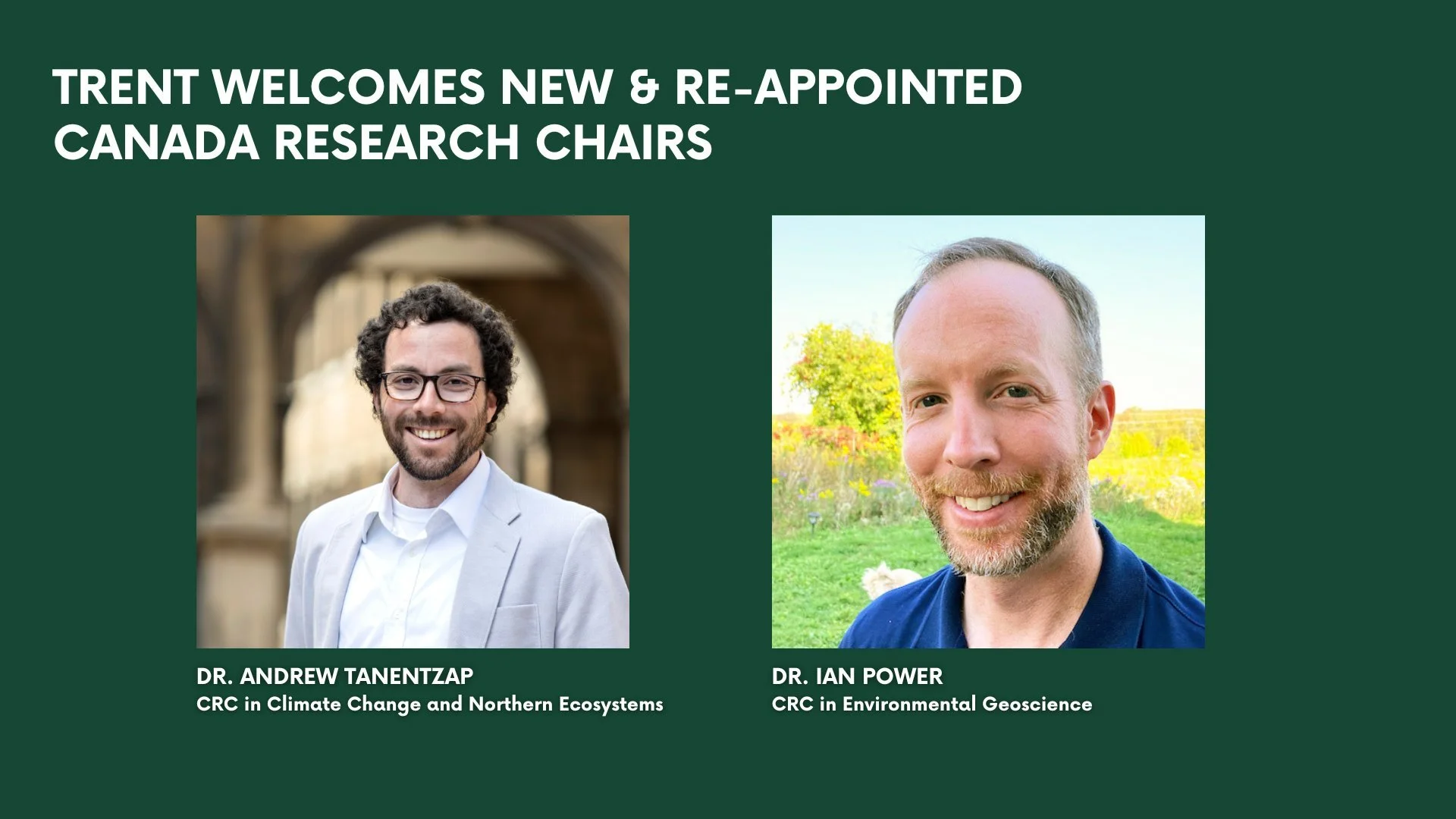Prof. Tanentzap comes from the University of Cambridge. He is one of ten Canada Research Chairs, and among seven CRCs with an environmental focus to their research.
From the cycling of carbon and nitrogen to water quality to wildlife health, he brings his expertise and research-focused foundational knowledge about the benefits of nature and how climate change impacts those benefits. His work looks at the human impact on microorganisms and carbon across all levels of life, from genes to landscapes.
“One of the things that brought me to Trent was the impressive resources at the Water Quality Centre. The Canada Research Chair position will give me the opportunity to leverage the equipment and expertise at the Water Quality Centre to advance my research projects and help train the next generation of environmental leaders,” said Prof. Tanentzap. “A highlight will be establishing the Trent Organic Matter Research Opportunity (T-OMRO) Fellowship, a global competition to host visitors at the Water Quality Centre from groups that have been typically underrepresented in our research field.”






